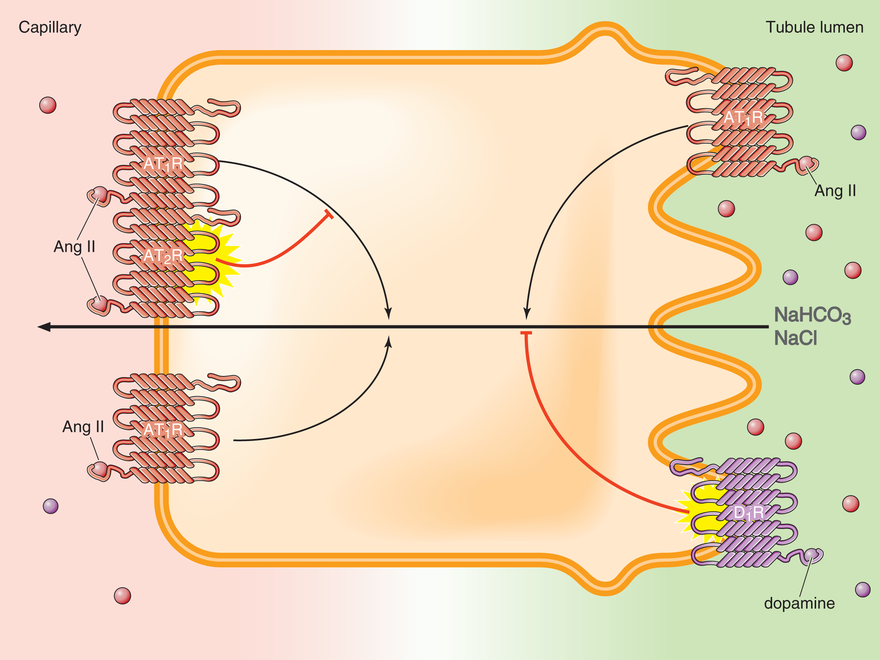
Bioinformatics; Structure/Regulation of Membrane and Epithelial Electrolyte Transport
My current research efforts are focused on understanding regulation of cellular functions of epithelia by analyzing gene expression at the whole genome level (transcriptomics), particularly in kidney. Epithelia provide the interface between body and outside environment. This necessitates providing a general barrier and selective, mostly active transport of specific solutes across this barrier. Previous efforts were directed at understanding the molecular and morphological basis of active transepithelial transport of solutes, in particular of monovalent electrolytes and nutrients. This encompassed studies of molecular mechanisms of membrane transport, energization of transport, development of epithelial cell lines, cellular regulation and integration of different signaling pathways and transporters to achieve transepithelial transport, and theoretical and mathematical modeling.
In preparation: Transcriptome signature for dietary fructose-specific changes in rat renal proximal tubule

(cartoon in preparation) The cartoon illustrates the general problem of dietary fructose-induced hypertension. While the processes of fructose metabolism and sodium transport by proximal tubule cells in the kideny are relatively well understood, it is currently unknown how fructose metabolism drives sodium reabsorption. Therefore, we analyzed gene expression changes that are induced by dietary fructose in the proximal tubule. The fructose metabolism drives reprogramming of metabolic processes towards gluconeogenesis, glyceroneogeneis and triglyceride synthesis, ketogenesis from amino acids (cataplerosis), and faster fructose metabolism. This analysis became possible by taking into account differential expresion and co-regulation of genes. Published in PlosOne: A.Gonzalez-Vincente, J.L.Garvin, and U.Hopfer, Transcriptome signature for dietary fructose-specific changes in rat renal proximal tubule: a quantitative approach to physiological relevance
Similarity of gene expression between cell lines and in vivo tissue by transcriptome analysis
The first step in integration of metabolic, transport, and signaling processes ocurs at the cellular level. Therefore, cell lines from specific tissues of animals are often used as experimetnal systems to elcuidate moleuclar and cellular mechanisms of physiological processes. At the cell level, it is also possible to evaluate to what extent physiological processes observed in animals also apply to humans. This lattter aspct is important when specimens from live humans cannot be obtained or manipulated. Tranacriptome analysis provides a comprehensive way to quantitatively compare different experimental systems in terms of gene expression or response to specific stimuli.
| Major Research Areas |
|---|
| Ion Channels, Membrane Transport, Renal Proximal Tubules |
| Disciplines |
| Animal Models, Biophysics, Cellular Modelling and Simulation, Electrophysiology, Metabolism, Signal Transduction, Systems Biology |
| Organ Systems |
| Cardiovascular System, Gastrointestinal System, Renal System |
| Diseases |
| Cystic Fibrosis, Hypertension, Metabolic syndrome |
| Major Techniques |
| Cell Culture, Confocal Microscopy, Dietary Interventions, Electrophysiology, Quantitative RT-PCR, Two-Electrode Voltage-Clamp Technique |